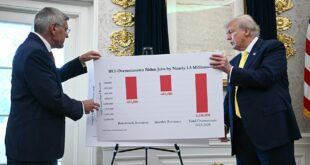
Labour’s plan to crack down on disability benefits will do little to curb the UK’s “alarming” levels of welfare fraud, experts have warned.
Sir Keir Starmer is under growing pressure to rethink controversial proposals to restrict access to Personal Independence Payment (PIP) – worth up to £800 a month – amid claims the cuts are unfair, misdirected, and risk hurting vulnerable people.
Ministers are also pushing ahead with a sweeping new fraud bill that would allow the Department for Work and Pensions (DWP) to rifle through claimants’ bank accounts to check for undeclared savings or work.
But campaigners and academics say the real problem lies elsewhere – with government figures revealing the lion’s share of fraud comes from Universal Credit, not PIP.
Figures for 2024–25 show £6.5 billion was lost to benefit fraud, but just £100 million of that involved PIP. By contrast, fraud linked to Universal Credit accounted for a staggering £5.2 billion.
Dr Ciara Fitzpatrick, a social security expert at Ulster University, said targeting PIP made little sense: “It’s misdirected because PIP fraud is much, much lower than other benefits. With PIP you have to go through a very arduous process to check on conditions.”
She accused the Government of demonising claimants and highlighted comments from Work and Pensions Secretary Liz Kendall, who previously said some people were “taking the mickey”.
“They’ve suggested some people are exaggerating conditions, particularly mental health conditions, and are claiming PIP when they don’t deserve it,” she said.
Under Labour’s proposals, an estimated 800,000 people currently receiving PIP would lose an average of £4,500 a year, while around 730,000 future recipients of Universal Credit would lose roughly £3,000 annually as the health element is stripped back.
Yet experts say this will not address the most significant fraud risks.
Tom Waters, associate director at the Institute for Fiscal Studies (IFS), said the structure of PIP made it less vulnerable to scams. He told The i Paper: “PIP is not income or work related… There’s a difference between truthfully describing your condition in a way that’s more favourable to getting approved, and outright fraud.”
He acknowledged that Universal Credit fraud is “high”, but warned that targeting it would be resource-intensive.
“A major fraud crackdown is a trade-off because it’s costly and takes a lot of resources,” he said.
Disability campaigners say the reforms are punishing the wrong people.
Georgina Colman, a PIP claimant and founder of the discount website Purpl, said: “If there is fraud in Universal Credit that needs to be tackled, then it shouldn’t be taken out onto the disabled community.”
Mikey Erhardt, of Disability Rights UK, warned the new powers could pave the way for mass financial surveillance: “We’re worried they [the DWP] will be checking people’s details with banks systematically, and it will become routine surveillance… It’s unfair to focus so heavily on PIP when the level of fraud is next to nothing.”
Dennis Reed, of the over-60s campaign group Silver Voices, labelled the plans a “snooper’s charter”, and warned older people on pension credit could be wrongly flagged over innocent errors.
“There might be a simple mistake, but they’ll be red-flagged as fraudsters,” he said.
Baroness Ros Altmann, former Tory pensions minister, also raised concerns that older claimants could fall foul of the new system by forgetting about savings or misunderstanding questions.
“It seems to make sense for the efforts to tackle fraud to focus on where the biggest losses are occurring – which would be Universal Credit,” she said.
Despite criticism, the DWP insists the changes are essential and fair.
A department spokesperson said: “The vast majority of people who are currently getting PIP will continue to receive it. We’re creating a sustainable welfare system that genuinely supports sick or disabled people while always protecting those who need it most.”
They added that fraud had already been cut by £800 million in the past year and would fall further thanks to the upcoming legislation, which is expected to save £1.5 billion over five years and £4.8 billion annually by 2030.
The DWP has confirmed it will recruit an extra 3,000 staff as part of its fraud-busting drive, with initial focus on Universal Credit and pension credit – though other benefits could follow.
MPs on the Public Accounts Committee previously warned that Covid-era weaknesses in the DWP system had opened the door to abuse by both organised criminals and “dishonest opportunists”.
 Latest World Breaking News Online News Portal
Latest World Breaking News Online News Portal






